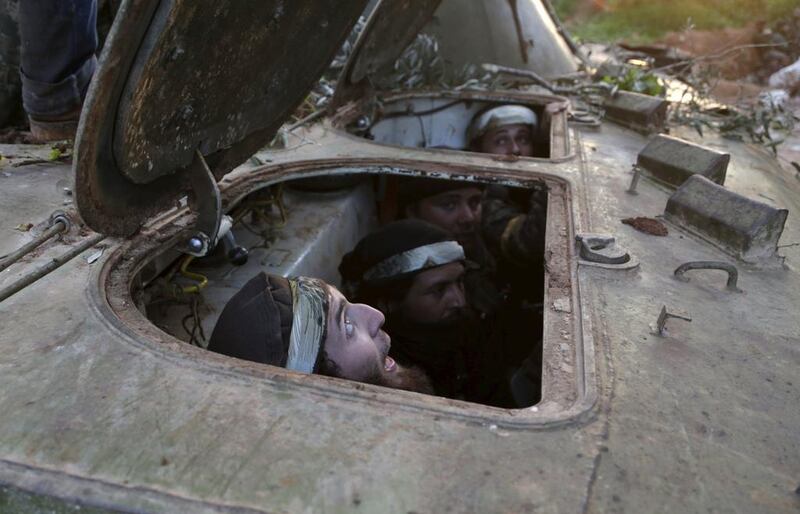Recent developments in the battle for northern Syria could have a dramatic effect on the likelihood of Syria remaining one contiguous state when the dust of war finally settles. A coalition of radical insurgents that includes members of Al Nusra Front, a group linked to Al Qaeda, has taken over most of Idlib. The news, which comes amid the bombing raids in Yemen and Northern Iraq, is equally, if not more important.
Idlib, a provincial capital with 100,000 residents, is a pivotal town. Located on a crucial road that links Damascus to Aleppo, its fate has been a matter of concern for all the disparate groups in the Syrian conflict. Now it has fallen into the wrong hands.
If the militants are able to entrench themselves in Idlib, it will be the second major city after ISIL’s capture of Raqaa to have been pried away from the regime. Al Nusra Front, along with its network of Sunni rebel allies, remains opposed to ISIL but that hasn’t stopped them from deploying tactics of similar depravity. The Idlib operation underlines that Al Nusra Front is a serious fighting force. The last thing Syria needs is the emergence of yet another extremist movement with the ability to capture entire cities.
The fall of Idlib and other towns to Al Nusra Front point to two critical developments in the Syrian civil war. The first is the rise of extremist rebels not aligned with Bashar Al Assad’s government or with ISIL. While Al Nusra’s role in the conflict has been overshadowed by ISIL, the fact of the matter is that northern Syria has become a hotbed of religious radicals. The taking of Idlib by them doesn’t bode well for the future as it raises questions about the likelihood of Syria ceasing to be a unified state.
All of this points to the centrality of Aleppo to the conflict. The Syrian regime has used the cover of coalition attacks on ISIL to entrench its hold over Aleppo through deadly barrel bombing raids on rebel-held parts of the city and the siege of rebel neighbourhoods. Idlib, given its central position to Aleppo and Al Assad stronghold of Latakia, is a vital component of the regime’s plans to mark off a corridor from Damascus to northern Syria that could be the home of a future Alawite state if the country splits. For the moment, Al Qaeda-linked militants have put the brakes on the regime’s scheme but this too only underlines the fluidity of the conflict.





